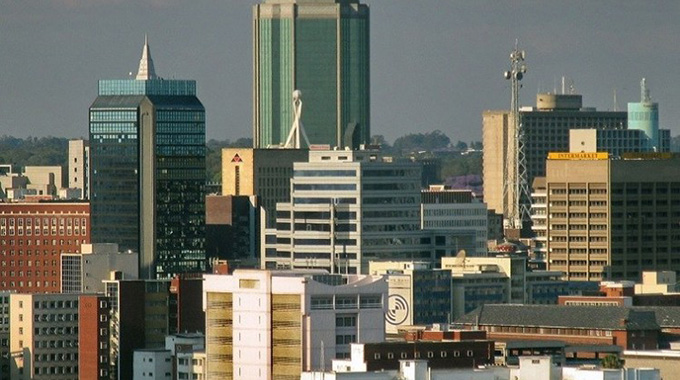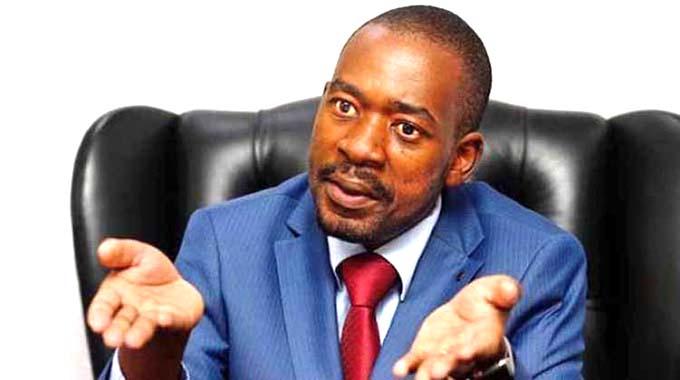Economic reform in the new dispensation

Nick Mangwana Special Correspondent
Several well-thought out economic blueprints have been crafted in the post-Independence era in Zimbabwe, some with flowery acronyms and couched in intellectual language, but none except the Transitional Stabilisation Programme (TSP) passed the implementation test. Have we not had many a regret that Zimbabwe is good at producing blueprints that end up gathering dust somewhere!
This last of a three part series I have written in this publication in as many weeks, dwells on the economic reforms undertaken by President Mnangagwa – the other legs being political and legislative reforms that we dicussed in the preceding weeks.
The TSP is President Emmerson Mnangagwa’s short term economic reform plan drawn from the flagship Vision 2030 policy, which seeks to transform Zimbabwe into a Middle-Income Economy by 2030.
The implementation of TSP is being followed in letter and spirit – all within a scientific matrix – quite unlike any other time in the history of Zimbabwe.
The TSP outlines policies, strategies and projects that guide Zimbabwe’s social and economic development interventions covering the period from October 2018 up to December 2020. President Mnangagwa’s economic reform thrust is aptly captured in the two mantras ‘Zimbabwe is open for business’ and ‘Austerity for Prosperity’, which signals Government’s unequivocal commitment to end Zimbabwe’s international isolation and ditch the detrimental politics of populism.
True to the mantra of opening the country for business, the new dispensation in 2018 amended the restrictive Indigenisation and Empowerment Act of 2007, which had whittled down foreign ownership of shares in local businesses to 49 percent. The Indigenisation law required that indigenous people own at least 51 percent of all enterprises valued over US$500 000. The law proved restrictive and unsavoury to foreign investors who felt short-changed and robbed of their hard-earned capital injections. A March 2018 amendment of the exclusionary Indigenisation law lifted the restrictions from all sectors but the diamond and platinum sectors. Foreign investors are now free to invest in the non-resource sectors without any restrictions as the new dispensation moves to facilitate the transfer of technology, value-addition and creation of employment. What is more assuring to potential investors is that Government has already intimated its readiness to remove the remaining restrictions in the diamond and platinum sectors. Already, Russian diamond giant, Alrosa, was allowed to snap a 70 percent controlling stake in a joint venture with the Zimbabwe Consolidated Diamond Company (ZCDC).
Correcting imprudence
Under the TSP programme Government is correcting the economic imprudence of the previous dispensation, which includes fiscal and monetary indiscipline, cash shortages and distortions in the foreign exchange market. These led to a ballooning fiscal deficit, and its financing through an overdraft at the Reserve Bank of Zimbabwe and the over-issuance of Treasury Bills, which were the major causes of macro-economic instability and financial sector vulnerability. In order to tame all the indiscipline, the new dispensation crafted and is implementing measures drawn from the TSP to contain its budget expenditures.
To contain the public expenditure bill, the TSP introduces the following interventions: public service reforms, strengthening public finance management system, improving the utilisation of public resources and improving accountability. The major target of the public service reforms is to reduce the consolidated public service wage bill and salaries for central Government plus wage related transfers. In tandem, the employment costs bill, inclusive of pension benefits and employer contribution to medical insurance and NSSA, will also reduce from 90.6 percent of total revenues to 62.5 percent of total revenues by 2020. Wage bill containment measures include: maintaining a freeze on the filling of non-critical posts, enforcing retirement policy, introduction of a voluntary retirement scheme, introduction of a new policy on personal issue vehicles, rationalisation of Foreign Service missions, reducing the outlays of bonus payments and implementing functional reviews which will emphasise on identifying areas of overlap, duplication and non-essential services. The measures also include the reforming of State Owned Enterprises (SOEs), unveiling a CMED vehicle tracking system, abolishing the posts of youth officers and cutting salaries of senior Government officials.
Government has already started implementing these reforms. State Owned Enterprises (SOEs), which have been bleeding the fiscus for decades are being reformed. A reform framework for 43 state enterprise and parastatals, aimed at making them fully accountable and economically viable has been approved. Some of the SOEs will be partially privatised through the engagement of strategic partners and/or listing on the Zimbabwe Stock Exchange, while others will be merged, fully privatised and/or liquidated. So far, the GMB has been de-merged into GMB Strategic Grain Reserve and Silo Foods, which is a commercial entity. The 15 SOEs earmarked for partial privatisation are National Handling Services, Petrotrade, Zimpost, POSB, Grain Marketing Board (GMB), Zimbabwe Mining Development Corporation, Infrastructure Development Bank of Zimbabwe, TelOne, NetOne, Telecel, ZUPCO, Willowvale Mazda Motor Industry, Chemplex Corporation, Deven Engineering and G&W Minerals. Government finalised the engagement of transitional advisors for the SOEs, which is a requirement from the Procurement and public Disposal Act. Soon Government would be inviting investors to buy shares in the entities. The parastatal reform programme is being funded through a US$42 million grant from the African Development Bank.
Early signs
The TSP interventions are already bearing fruit as Government managed to reduce its employment costs by retiring 3 365 youth officers. It also slashed salaries of senior Government officials by five percent. The salary reduction affected officials from the rank of Principal Director up to the Presidium. Government also reduced the bonuses paid to civil servants in 2018. Instead of using the previous formula, where the bonuses were calculated using civil servants’ basic salaries plus the transport and housing allowances, Government only paid bonuses calculated from the basic pay. The freeze on filling non-critical posts has been maintained. Government is also retiring all Government officials aged 65 and above. The number of the country’s foreign missions is also being reduced. The country has 46 diplomatic missions staffed by approximately 581 staff members. To further cut its costs, Government banned the use of its vehicles on unsanctioned businesses by installing a tracking system to monitor the movement of all government vehicles. Officials found abusing State vehicles for personal use are penalised. All these austerity measures are saving millions of dollars that are being directed to fund essential developmental projects like road rehabilitation.
On the monetary front, the new dispensation managed to arrest inflation which was galloping at a pace that was haemorrhagic to the economy. The Ministry of Finance and Economic Development Professor Mthuli Ncube timely introduced Statutory Instrument 142 which ended the multi-currency system and introduced a mono-currency system. The intervention sounded the death knell to a parasitic black market system that have for decades sabotaged the economy. The SI142 resuscitated the interbank foreign currency exchange system and revived the operations of bureau de changes. Currently the formal foreign currency exchange system is flourishing and enjoying favourable rates that have markedly diminished activity on the parallel market and significantly improved the inflow of foreign currency into the formal market for the benefit of industry and other business.
Ease of doing business
On improving the ease of doing business, Government has started implementing plans to establish a streamlined one-stop-shop entity called the Zimbabwe Investment Development Authority (ZIDA) in order to reduce the time taken by investors to start up a business in the country. The ZIDA bill was gazetted on 5 April 2019 and is now before parliament. ZIDA will amalgamate three investment agencies, the Zimbabwe Investment Authority, Joint Ventures Unit and the Special Economic Zones Authority into a one-stop-shop. In addition, Government introduced Special Economic Zones (SEZs). On 17 August 2018, Government passed Statutory Instrument 154 of 2018, which effectively brings all SEZs into full operation. According to the Government gazette, nine companies including Surewin Pvt (Ltd) (Sunway City Technology Park SEZ), Iron and Steel Company of Zimbabwe (Zisco SEZ), Afrochine Pvt Ltd (Selous Afrochine Special Economic Zone), Southpole Consulting Pvt Ltd (Victoria Falls Special Economic Zone), Lentsloane Pvt Ltd (Norton Business Park), Trade Kings Zimbabwe Pvt Ltd (Workington), Ecosoft Pvt Ltd and Bernard Pvt Ltd have been registered to spearhead SEZs. Investors operating in special economic zones will not pay tax in the first five years after which they will pay tax at a rate lower than the normal rate of 35 percent. So far Government has improved the ease of doing business by implementing the following administrative measures: improving property registration system by reducing the number of procedures from five to four, establishment of a credit registry to facilitate the obtaining of credit, improving the enforcement of contracts through increasing the number of small claims courts from two to ten and the establishment of four commercial courts. Other incentives to attract investors include tax breaks and deducting tax on capital expenditures on new equipment, machinery and factory improvements.
Fighting corruption
To further improve the ease of doing business, Government has also fully revived efforts to fight corruption by reconstituting and re-energising the Zimbabwe Anti-Corruption Commission (ZACC) by giving it arresting powers. A new ZACC Chairperson, Justice Loice Matanda-Moyo and a new team of commissioners were appointed.
The team took no time to draw its first blood by arresting the high profile Minister of Tourism and Hospitality Industry Prisca Mupfumira who is charged with corruption related to operations at the National Social Security Authority (NSSA). Eradicating corruption will reduce the cost of establishing business in Zimbabwe and will remove other impediments associated with graft.
Reforms by the new dispensation received thumbs up from several quarters with the International Monetary Fund (IMF) Representative to Zimbabwe, Mr Patrick Imam, telling the Business Weekly that, “we welcome the reforms announced in the February 20 Monetary Policy Statement and the June 24 press release, which seek to address economic distortions that have impaired macroeconomic stability.”
The United Nations Resident Coordinator Mr Bishow Parajuli also welcomed the reforms, saying “this economic reform which is taking place is essential, the steps being taken for economic reform were essential.”
In recognition of Government’s efforts to turn around the economy, the World Bank upgraded Zimbabwe’s ranking from Low Income Economy to a Lower Middle Income Economy for the period 2019 to 2020. This shows that the economy is growing and the country is progressing well towards its Vision 2030 target of turning the economy into Middle Income status by 2030.










Comments